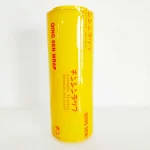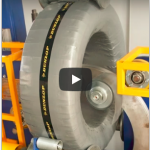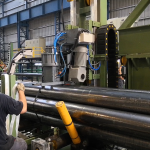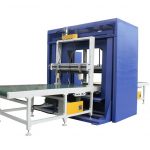Supplier Engagement: Key Factors When Contacting Horizontal Stretch Wrapping Machine Providers
- Supplier Engagement: Key Factors When Contacting Horizontal Stretch Wrapping Machine Providers
- 1. Understanding Your Packaging Requirements
- 2. Supplier Reputation and Experience
- 3. Product Range and Customization Options
- 4. After-Sales Support and Maintenance Services
- 5. Evaluating Supplier Transparency and Communication
- 6. Sustainability and Environmental Considerations
- 7. Negotiation and Value-Added Services
- 8. Conclusion
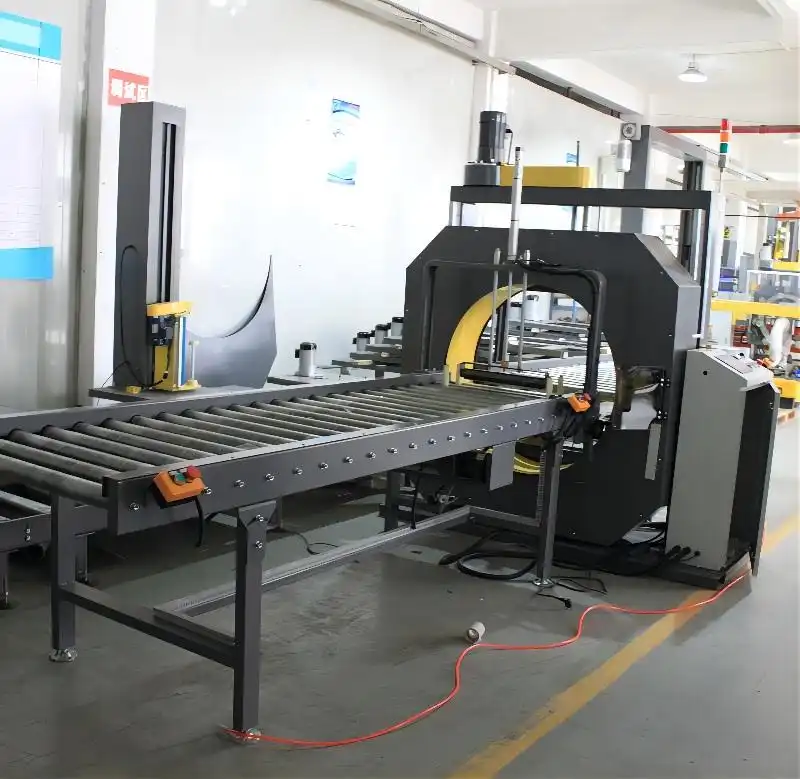
Selecting the right horizontal stretch wrapping machine for your packaging needs is a significant decision that involves evaluating both the machine’s capabilities and the reliability of the supplier. The quality of the supplier’s service, support, and expertise can have a long-term impact on the success of your packaging operations. By engaging effectively with potential suppliers, you can ensure that the machine you invest in aligns with your specific requirements and operational goals.
In this article, we will explore the key factors to consider when contacting horizontal stretch wrapping machine providers, focusing on supplier reputation, product range, customization options, after-sales support, and overall value.
1. Understanding Your Packaging Requirements
Before engaging with any supplier, it’s crucial to have a clear understanding of your packaging requirements. This involves analyzing your current operations and identifying specific challenges you aim to address with a horizontal stretch wrapping machine.
1.1 Product Size and Shape
The dimensions and shape of the products you need to package will determine the specifications of the wrapping machine. Are you wrapping long, bulky items such as pipes or aluminum profiles? Or are you dealing with a variety of product sizes and shapes? Knowing these details will help you engage suppliers with a clear idea of what you need.
1.2 Production Volume
Another key consideration is your production volume. High-volume operations may require fully automated machines capable of handling continuous packaging, while smaller operations may benefit from semi-automatic machines. Sharing this information with suppliers allows them to recommend machines that align with your throughput requirements.
1.3 Operational Goals
What do you hope to achieve with the new wrapping machine? Whether it’s improving efficiency, reducing labor costs, or minimizing material waste, having clear operational goals will guide your discussions with suppliers and help them tailor their recommendations accordingly.
2. Supplier Reputation and Experience
A supplier’s reputation and experience are critical indicators of the quality and reliability of their machines. Engaging with suppliers who have a proven track record in the industry ensures that you receive high-quality equipment and dependable service.
2.1 Customer Reviews and Testimonials
When contacting potential suppliers, request customer reviews and testimonials to gain insights into their track record. A supplier with positive feedback from other businesses in your industry is more likely to understand your specific needs and deliver a machine that meets your expectations.
2.2 Industry Expertise
Suppliers with extensive industry expertise can offer valuable advice on selecting the right machine for your application. They understand the unique challenges of packaging in different sectors, from construction materials to furniture, and can provide recommendations based on their experience with similar businesses.
3. Product Range and Customization Options
The range of products a supplier offers is another important factor to consider. Look for suppliers that provide a variety of horizontal stretch wrapping machines, as this gives you more flexibility in choosing a model that fits your needs.
3.1 Machine Size and Capacity Options
A reputable supplier should offer machines with different wrapping diameters and capacities to accommodate various product sizes. Whether you need a machine for small, lightweight items or large, heavy products, the supplier should have a model that suits your specific requirements.
3.2 Customization Capabilities
Some businesses require machines with customizable settings to handle a wide range of product shapes and sizes. Engage with suppliers that offer customization options, such as adjustable film tension, wrapping speed, and machine size. Customization allows you to fine-tune the machine to meet your packaging needs, improving both efficiency and product protection.
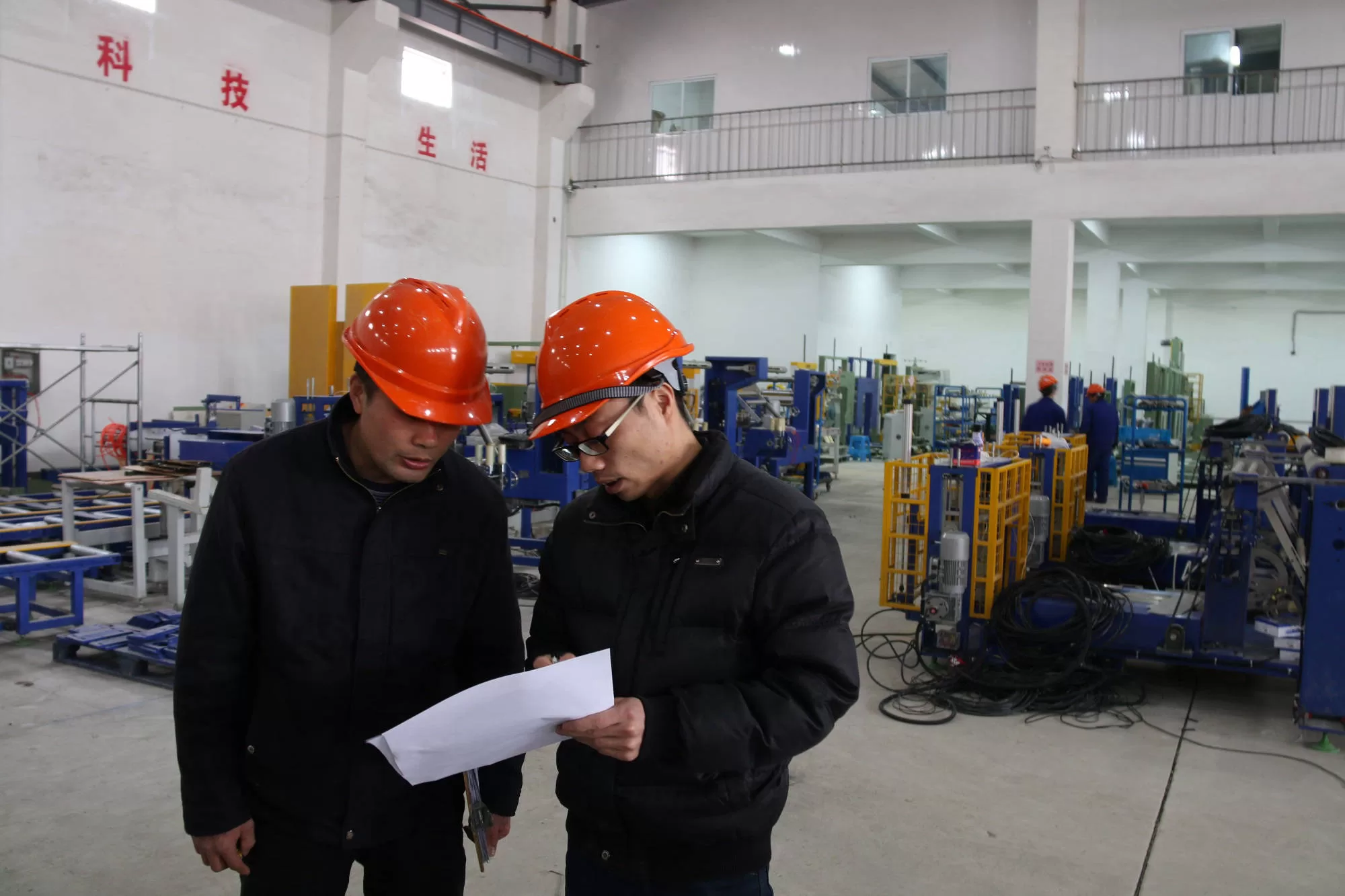
Get Your Best Solution !
4. After-Sales Support and Maintenance Services
The level of after-sales support a supplier offers can significantly impact the long-term performance of your wrapping machine. It’s essential to engage with suppliers who provide comprehensive support services, from installation and training to ongoing maintenance.
4.1 Service Contracts
When contacting suppliers, inquire about their service contracts. A good supplier will offer contracts that cover regular maintenance, technical support, and access to spare parts. These contracts ensure that your machine remains operational and efficient, minimizing downtime and costly repairs.
4.2 Technical Support and Training
Effective training for your operators is crucial for maximizing the performance of the wrapping machine. Ask potential suppliers if they offer operator training programs to ensure your staff understands how to use the machine correctly. Additionally, verify that the supplier provides technical support for troubleshooting and resolving issues.
4.3 Spare Parts Availability
Downtime due to a lack of spare parts can significantly impact your operations. Ensure that the supplier has a reliable supply chain for parts and can provide replacements quickly if needed. Some suppliers offer parts packages that include essential components, reducing the risk of unexpected delays.
5. Evaluating Supplier Transparency and Communication
Effective communication is a vital component of a successful supplier relationship. Engaging with suppliers who are transparent about their processes, pricing, and delivery timelines helps you make informed decisions and avoid potential misunderstandings.
5.1 Clear Pricing Structure
When discussing pricing with suppliers, ensure that they provide a clear pricing structure that includes all costs, such as installation, training, and maintenance. Transparent pricing allows you to compare offers and understand the total cost of ownership for each machine.
5.2 Lead Times and Delivery Schedules
Ask suppliers about their lead times for delivery and installation. Understanding the timeline helps you plan your packaging operations and ensures that the machine arrives when needed. Reliable suppliers will provide realistic delivery schedules and keep you informed of any potential delays.
5.3 Contract Terms and Conditions
Before finalizing any purchase, carefully review the supplier’s contract terms and conditions. Ensure that the contract outlines warranty details, delivery timelines, payment terms, and responsibilities for both parties. Engaging with suppliers who provide clear, fair contract terms helps establish a strong foundation for a long-term partnership.
6. Sustainability and Environmental Considerations
As businesses increasingly focus on sustainability, it’s important to choose suppliers who offer environmentally friendly solutions. When contacting potential suppliers, inquire about their sustainability initiatives and the machines’ energy efficiency.
6.1 Eco-Friendly Packaging Materials
Some suppliers offer wrapping machines that support eco-friendly films, such as biodegradable or recyclable materials. Choosing machines that work with sustainable materials can help reduce your company’s carbon footprint and align with industry-wide sustainability goals.
6.2 Energy-Efficient Machines
Energy consumption is another key consideration. Energy-efficient wrapping machines not only reduce your operational costs but also minimize environmental impact. Ask suppliers if their machines are designed to conserve energy during operation and if they offer settings to further reduce power usage during idle periods.
7. Negotiation and Value-Added Services
Engaging with suppliers also involves negotiating terms and discussing value-added services that can enhance the overall deal. Suppliers who are open to negotiation are more likely to offer flexible terms that align with your budget and long-term goals.
7.1 Extended Warranties
When negotiating with suppliers, ask about the possibility of an extended warranty. A longer warranty period provides additional peace of mind, ensuring that the machine is protected against defects or malfunctions beyond the standard warranty.
7.2 Bundled Services
Some suppliers offer bundled services, such as installation, operator training, and ongoing maintenance, at a discounted rate. Bundling these services can provide cost savings and ensure that all aspects of the machine’s installation and operation are covered from the start.
8. Conclusion
Engaging with the right supplier for a horizontal stretch wrapping machine is a critical step in ensuring the success of your packaging operations. By focusing on factors such as supplier reputation, product range, after-sales support, and sustainability, you can identify suppliers who provide high-quality machines and long-term value. Effective communication and transparency are essential for building a strong partnership, while negotiation and value-added services can further enhance the overall deal.
Choosing a supplier that aligns with your operational goals and packaging needs will ensure that your investment in a horizontal stretch wrapping machine delivers lasting benefits, improving efficiency, reducing costs, and enhancing product protection.

Get Your Best Solution !






